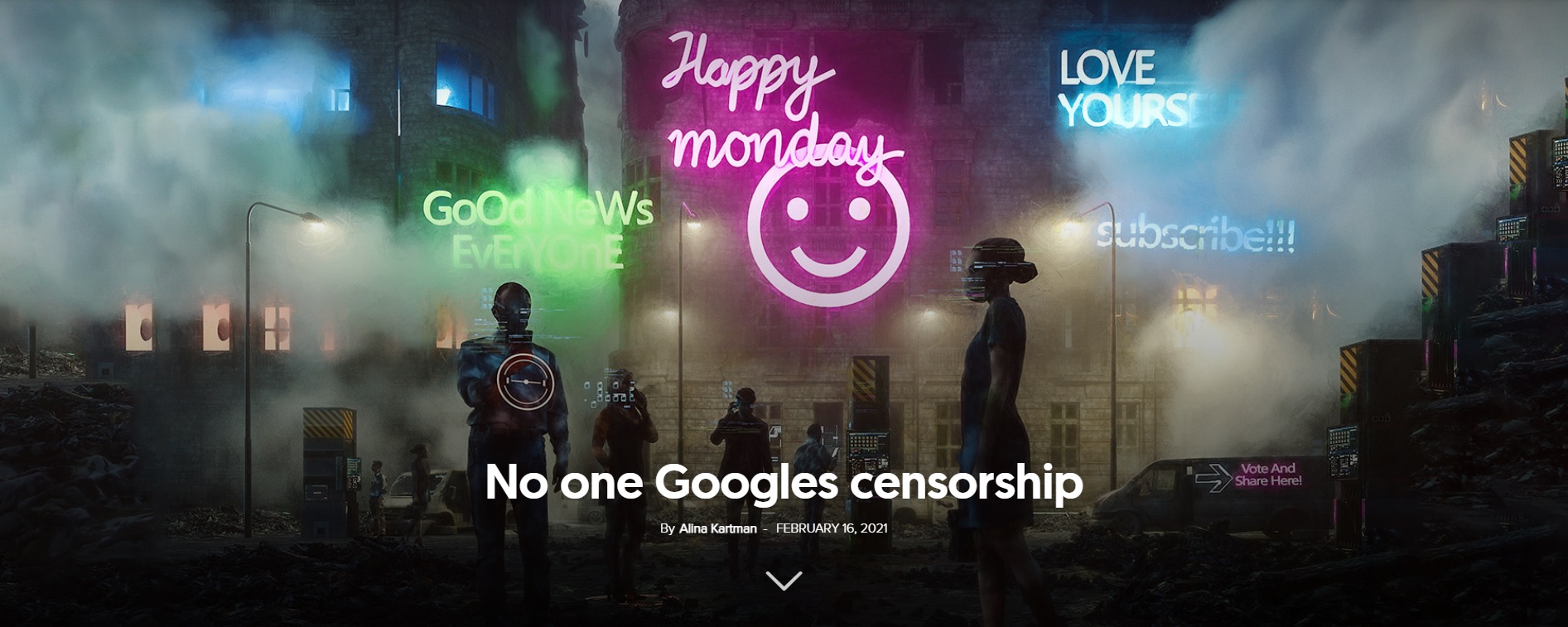In 2018, whistleblower Christopher Wylie leaked that British consulting firm Cambridge Analytica had used data collected by Facebook to influence users with political advertising in events like the 2016 United States election—a revelation which according to The Guardian resulted in Facebook being handed a hefty $US5 billion fine by the Federal Trade Commission. The social media giant has also been criticised for its use of “shadow profiles”, which collect an individual’s data without their explicit permission—regardless of whether or not the user has a Facebook profile of their own. Then there’s the more troubling content the platform has also been used for—such as the livestreaming of the 2019 Christchurch mosque shootings.
More recently, a report by Reach Australia highlighted the ways in which advertisers were able to create Facebook ads targeted at 13–17-year-olds for vaping, cocktail recipes or online dating—activities that are illegal for minors. In contrast, Signal, a secure online messaging company and Facebook competitor, revealed that the latter would not allow them to create advertisements for Instagram which showed users the information that Facebook had collected on them and given to advertisers—a move which arguably shows the monopoly power which Facebook can exert against smaller companies and competitors due to their immense market share.
Unfortunately, Facebook is not unique in this regard. When one examines most “big tech” institutions—be they social media companies such as Facebook and Twitter or platform powerhouses like Apple and Microsoft—similar complaints, controversies or issues begin to surface.
YouTube, which is owned by Google (in turn owned by parent company Alphabet), has faced criticism for how its algorithm delivers increasingly fringe and radical right-wing content to its users. Twitter, meanwhile, has also been criticised for being unable to moderate fake news and misinformation. A 2017 investigation of the platform estimated that between 9 and 15 per cent were bots, while a recent study conducted by researchers at Carnegie Mellon University found that bots accounted for almost half of the tweets about Covid-19 during the height of the pandemic in the past year.
Finally, there’s the issues of secrecy and a lack of transparency from these companies whose influence is increasingly commonplace in our lives. Frank Pasquale, professor of law at Brooklyn Law School, uses a “black box” metaphor in his book The Black Box Society to describe the processes involved: “The term ‘black box’ is a useful metaphor for [fully understanding the problem], given its own dual meaning. It can refer to a recording device. . . . Or it can mean a system whose workings are mysterious. . . . We face these two meanings daily: tracked ever more closely by firms and government, we have no clear idea of just how far much of this information can travel, how it is used, or its consequences.”
Pasquale continues by explaining why this is important: “It matters because authority is increasingly expressed algorithmically. . . . Such automated processes have long guided our planes. . . . But where do we call a halt? Does the recommendation engine take into account, say, whether the restaurant or car company gives its workers health benefits or maternity leave. . . The values and prerogatives that the encoded rules enact are hidden within black boxes.”
Pasquale acknowledges that there are numerous benefits that “Big Tech” provides to us in our everyday lives. But all this information seems to highlight two concerning trends present in most big platforms: we do not understand how they function, and they do not care about us as individuals, but rather a mixture of product, user and revenue stream. Big tech’s power comes from the commodification of users.
Big tech giants are not your friend.
An All-Knowing Power
Unfortunately, the status quo seems unlikely to change due to the sheer influence these institutions have over both individuals and governments—thanks in part to their immense market power and the inability of antitrust law to deal with the business practices of these digital giants. As Benedetta Brevini, associate professor at the University of Sydney and author of Amazon, Understanding a Global Communication Giant puts it, these large companies are like feudal lords from the dark ages. “I like to refer to platforms as ‘Digital Lords’,” Brevini says. “They lock their users in, by attracting them into their digital estate. The more attractive the content is, the more consumer engagement they have, and in this way, they can extract more and more data from their users. They then use this data to target the same users with more sophisticated advertising.”
Perhaps in the future, these companies will have elevated themselves from mere “Digital lords” into “Digital demi-gods”, who know our every move and control or restrict our every action.
It’s interesting to contrast these “lords”, who wield and exert a vast amount of influence on us, with God. Many people perceive God in similar terms to these corporations: an all-knowing, ever-watching and controlling force. There is some biblical basis for this concept. In one of his songs about God, King David, leader of the nation of Israel, states: “Lord, you have examined me and know all about me. You know when I sit down and when I get up. You know my thoughts before I think them” (Psalm 139: 1,2, NCV*). Does this mean that God knows our thoughts before we do?
Similarly, like a black box, we cannot ever fully understand God or His power, while on earth. In the Bible, a man named Job experiences great suffering and questions God as to why He let it happen. In response, God highlights the extent of His powers and questions Job in response—asking whether Job understands the complexity of the universe that God has created. Like a black box, God’s workings are mysterious.
If this is your concept of God, you may be asking, “Should we be concerned about God?”
While some of the aspects of God may bear a passing resemblance to parts of big tech, when placed in the fuller context of His character they paint a different picture.
When looking at God’s all-knowing power, we can see that this is built on a foundation of love. Speaking once again to His chosen people in a time of crisis, God used this knowledge to reassure them: “‘For I know the plans I have for you,’ declares the Lord, ‘plans to prosper you and not to harm you, plans to give you hope and a future’” (Jeremiah 29:11). As the Bible continues, these plans do indeed come to fruition.
But God does not force His plans or desires on us. While He emphasises His love, He does not force a relationship with those who do not want it. In Revelation 3:20, God likens His desire for a relationship to a visitor calling on you at home. “Here I am! I stand at the door and knock. If anyone hears my voice and opens the door, I will come in and eat with that person, and they with me.” God is not a controlling God. He provides for us but will not deprive us of one of the earliest gifts He gave us—the freedom of choice.
Similarly, God’s Ten Commandments listed in Exodus 20 may seem intimidating, but are actually straightforward applications of one of the most fundamental human concepts. When questioned on this topic Jesus summed up the law of God in a couple of simple maxims: “‘Love the Lord your God with all your heart and with all your soul and with all your strength and with all your mind’; and ‘Love your neighbour as yourself’” (Luke 10:27). Everything God wants us to do feeds back into these two simple guidelines.
Finally, God’s infinite power is contrasted with His desire to personally know us. God created the universe and all in it, but in the form of His Son Jesus He was also a Friend to the sick, the outcast and the non-believer. As one of the most famous Bible verses of all time states, “For God so loved the world that He gave his one and only Son, that whoever believes in Him shall not perish but have eternal life” (John 3:16). No matter who you are, God loves you and is eager to connect with you—the Creator of all still has time for a personal relationship.
The picture of God painted by these verses differs from the one you may have encountered previously which may have been disconcertingly similar to the reality that “big tech” propagate. In contrast to the big tech companies which only seek to harvest you for their own gain, God has your best interests at heart, and wants to know you personally.
Big tech may not be your friend. But God can be.
This article first appeared in Signs of the Times Australia.
Ryan Stanton is an editorial assistant for Signs of the Times magazine. A media and communications graduate, he is currently studying a PhD examining the intersection between podcasts and gaming content creation.
*Scripture taken from the New Century Version®. Copyright © 2005 by Thomas Nelson. Used by permission. All rights reserved. Used with permission.




















